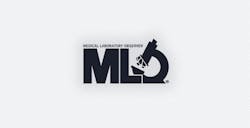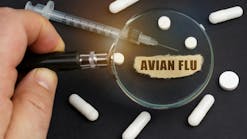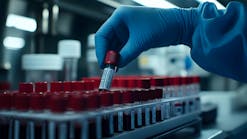T
oday's medical labs are faced with a number of challenges. There is a demand to run an increasing number of molecular tests — often requiring same-day results — and ever-increasing testing menus due to expanding technologies. These technologies involve a multitude of assays, including commercial and lab-developed tests that need to be performed from many sample types and tube formats. In addition, labs feel the pressure and need to decrease turnaround time, while delivering highly accurate results in a cost-effective manner — all in the face of increased workloads and shortages of resources. Labs, however, can learn from a concept that stems from the manufacturing industry.
The concept of analyzing a process to improve its efficiency dates back to Henry Ford's automotive assembly line in the 1920s, but Toyota gave it new life as LEAN process improvements. The main focus of LEAN is a continuous effort to eliminate process defects and waste while improving efficiency. Although LEAN was developed for use in the manufacturing industry, the process can be applied to the work in molecular testing labs to create an overall standardization in process and procedure. It can be as simple as reorganizing a lab's footprint and implementing methodsthat include more efficient transport and handling of samples, to the management and communication of the data and final results.
One of the most important changes a lab can make in streamlining an operation is automation. This contributes to the LEAN concept by decreasing the time from sample to result, to reducing errors through reproducible processes and freeing hands-on time for the technicians — all of which allows labs to use all available resources (both human and automated) more efficiently.
Molecular testing involves the preparation of the sample by extraction of nucleic acids, the assay setup, and, finally, the detection and analysis. While sample preparation or assay setup can be automated separately by many instruments, the LEAN concept would ideally encompass systems that can automate the complete workflow from the preparation of the sample through to the final result. Systems should not only automate the complete process but, at the same time, provide labs with the flexibility to process a variety of sample types and number, and types of assays.
A few systems on the market offer this needed flexibility to fully implement the LEAN concept and fully automate the sample preparation through the assay setup. The assay setup module directly interfaces with the sample preparation module, enabling automation of complete workflows.
Depending on the requirements in the lab, the modules can run independently or be integrated. In integrated mode, the samples processed on the sample prep unit are transferred directly to the assay setup module via an internal transfer module, reducing manual handling steps and documentation.
A number of case studies show just how well automation can work in molecular testing. A laboratory that used lab-developed tests for the detection of gastro-enteric parasites and bacteria tried to compare its self-optimized procedure with a fully automated system with off-the-shelf protocol. The results were very similar — but with the benefit of greatly reduced hands-on time for the lab workers.
Another lab compared the manual handling of 67 samples from extraction to real-time PCR detection. The lab established more than 4.5 hours of walk-away time when an automated system was installed. Lab workers not only found an improved speed of testing but also eliminated process defects by increasing the accuracy and precision by minimizing the risk of human error.
The goal in any lab, but particularly in a LEAN lab, is to achieve an error-free operation that delivers efficiency, safety, and accurate results, all while keeping time and costs under control. Integrating new automation technologies can be an important first step to creating a laboratory and lab environment that can deliver all these critical factors.
Tracy Gambrell is the marketing manager-Automation at QIAGEN Sciences in Germantown, MD. She can be reached at Tracy.Gambrell < at > qiagen.com.





